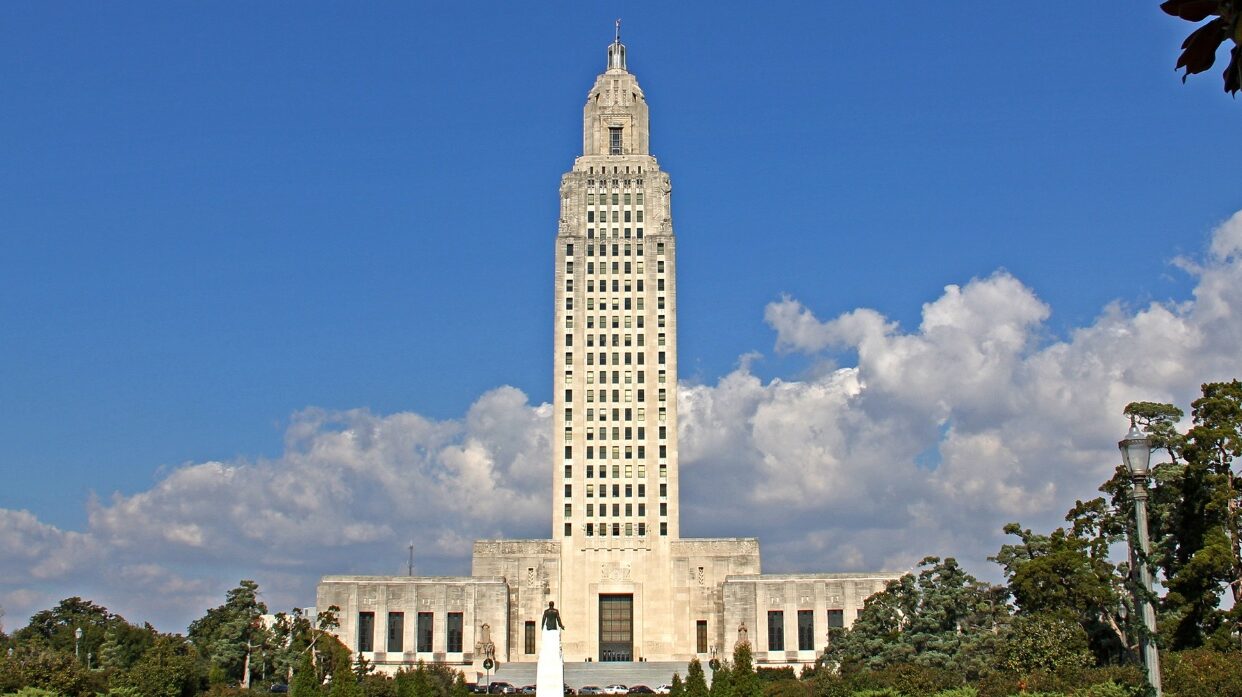A Better Balance
Chloe2022-12-15T15:47:17-05:00A Better Balance, a national nonprofit advocacy organization, uses the power of the law to advance justice for workers, so they can care for themselves and their loved ones without jeopardizing their economic security. Through legislative advocacy, direct legal services and strategic litigation, and public education, our expert legal team combats discrimination against pregnant workers and caregivers and advances supportive work-family policies like paid sick time, paid family and medical leave,
Guaranteed Basic Income: Lessons and case studies from implementation across the US and a recommendation for St. Louis
admin2022-12-01T21:20:32-05:00How One Childcare Worker Took ARPA Funds Into Her Own Hands to Win Grants for Home-Based Providers
Chloe2022-11-09T21:58:58-05:00
For Benu Chhabra, being a childcare provider is more than a job – it’s a calling. Chhabra has operated a home-based childcare center in Concord, California for 22 years and worked in the childcare field for nine years prior to opening her business. She is passionate about supporting children and their families.
“All of these families, they become like our extended family,” she says.
Unfortunately, families and providers alike struggle to get by with ever-increasing expenses. But Chhabra saw an opportunity in the State and Local Fiscal Recovery Funds from Biden’s American Rescue Plan – and she took it.
Chhabra is part of the Childcare Changemakers organizing program at Community Change, which advocates for making affordable, accessible child care possible for all families while also paying living wages for childcare providers.
Childcare providers like Chhabra have faced many daunting challenges over the past two years. She remained open throughout the entire pandemic because many of the families she serves are essential workers who needed childcare so they could keep working.
Expenses related to pandemic protocols put additional strain on Chhabra’s already stretched-thin budget and trying to obtain critical supplies was an expensive and time-consuming process.
“By the time we got to the stores, everything was gone, because we were not given a priority as essential workers at that time. So we drove at four o’clock in the morning, and everything was gone, so we drove further and stood in the rain to get one stack of paper towels or toilet paper,” she said.
Even without the additional challenges created by the pandemic, Chhabra and other family child care providers are caught in a no-win situation. They barely make enough to cover their expenses – but increasing their revenue would mean raising their fees, and the families they serve are already struggling to afford the costs. “Childcare is their second biggest expense,” Chhabra says.
The biggest challenge is staffing, Chhabra says. It is difficult to find and keep good workers because she can’t pay enough or offer benefits – meaning she can’t compete with other potential employers like retail stores or fast-food restaurants. “They can go to Peet’s Coffee, which is paying $20 an hour or more.”
Universal childcare and a significant federal commitment to supporting childcare workers and ensuring they earn a reasonable wage would greatly alleviate many of the obstacles that Chhabra and other childcare providers face.
Meanwhile, access to grants funded by federal legislation passed last year could help home-based childcare providers in Concord.
Concord received an allocation of $27 million in ARPA State and Local Fiscal Recovery Program funds, of which $8 million has already been spent. At its council meeting in September, the Concord City Council continued its discussions about how it plans to use the remaining funds.
In preparation for this meeting, childcare providers in the area organized to ensure their voices were heard by local officials. In the city’s tentative plan to distribute grants to local small businesses impacted by the pandemic, home-based businesses wouldn’t have been eligible to apply for grants, but Chhabra and other local childcare providers launched an effort to lobby for an exception to be made for home-based family childcare centers. They spoke at Council meetings, initiated a letter-writing campaign, and worked to raise public awareness about the hardships faced by many home-based childcare providers.
Their efforts paid off. During that September meeting, Assistant City Manager Justin Ezell – who presented a report from the Council Ad Hoc Committee overseeing the American Rescue Plan Act Investment Plan – noted, “The Ad Hoc Committee heard loud and clear that family childcare homes struggled during the pandemic, and therefore these homes will be eligible for these funds, so long as they are state-licensed and have been operating since June 30, 2020.”
Councilmember Tim McGallian even thanked Chhabra specifically for her advocacy and bringing together parents and providers on this issue.
Concord City Council approved the Ad Hoc Committee’s recommendation for a plan that earmarks $2 million to support small businesses, in the form of grants of $5,000 that would help reimburse the cost of allowed expenses. Home-based childcare providers were deemed eligible to apply for these grants and they were only required to be licensed by the state – they didn’t need to have a city business license, which would have been a problem for many of them.
While she is relieved about this City Council decision, Chhabra isn’t done yet. This victory has motivated her to set her sights higher and continue the momentum she and other organizers have achieved. Next up: Contra Costa County. “The county has this pot of money sitting there, too. So we’re going to try to go for that, for our providers,” Chhabra said.
Louisianans Come Together to Call for ARP-Funded Equitable Recovery Plan
Chloe2022-09-07T13:53:08-04:00A Recovery Agenda for Louisiana
Chloe2022-08-08T20:18:35-04:00This Recovery Agenda is centered on some key priorities as Louisiana comes out of the pandemic and continues to rebuild from Hurricanes Laura and Ida: supporting workers; addressing housing needs; investing in families and poverty reduction; helping children; and making our government and communities more resilient. It was developed in partnership with advocates and community leaders across Louisiana, with the goal of building a more inclusive and equitable recovery.
Louisianans Come Together to Call for ARP-Funded Equitable Recovery Plan
Chloe2022-08-11T16:54:53-04:00Project Overview
The Louisiana Budget Project brought together 17 organizations to draft and promote a Recovery Agenda for Louisiana. It called for investing federal pandemic aid to support workers, address housing needs, invest in families and poverty reduction, and help children. “Louisiana has a once-in-a-generation opportunity to solve some long-standing problems,’’ Louisiana Budget Project executive director Jan Moller said. “But that can only happen if we focus our rebuilding efforts on the communities and people that have suffered the most from the Covid pandemic and natural disasters.”
Community-Centered Process: Coming together to avoid the failures around the use of Hurricane Katrina aid
The Recovery Agenda for Louisiana reflects the collective effort of coalition members devoted to economic, racial, and environmental justice. The coalition includes organizations focused on affordable housing, children’s issues, workers’ rights, environmental justice and more. These groups recognized that the last time the state received substantial federal aid – following Hurricane Katrina – policymakers squandered the money with giveaways to big business and tax cuts for the rich. These poor choices led to years of budget cuts that left Louisiana workers and families even further behind. The coalition was committed to avoiding a repeat, and so they developed a comprehensive agenda and presented it to policymakers in advance of the state’s budget session. The proposals had a few specific budget asks depending on projects or previously existing programs but were generally intended to serve as a starting point for negotiations with legislators.
Organizing Wins
The Louisiana Recovery Plan coalition had notable successes. The state budget adopted for Fiscal Year 2023 uses $27 million in federal funds for early childhood education programs and $33 million for workforce training related to health care. Early childhood education and child care funding were explicit asks made by the Governor in the executive budget, and the paid leave request was a result of a deal cut by the Speaker and House Dem Caucus Chair. In addition, two proposals from the Recovery Agenda were funded: Supporting the Empowering Families to Live Well Council, which will help the state advance policies that address poverty, and $500,000 for an actuarial study of a paid family and medical leave program. The Live Well funding was achieved thanks to the State Association of Catholic Bishops, who was a partner organization. The budget creates the potential for even greater future investments in an equitable recovery and offers a framework for continued organizing of the Recovery Plan coalition.
Equity Goals
The Recovery Plan reflects a comprehensive vision to help residents hurt the most by the pandemic and to lay the groundwork for addressing long-standing economic and racial inequities. It calls for, among other things: premium pay for essential but low-wage workers who provided vital services during the pandemic; a new paid family and medical leave program that will help millions of workers and put the state in a better position to weather future downturns; both emergency rental assistance and funds to help residents repair damage remaining from prior hurricanes; extensive investments in children from birth-to-age three; student loan forgiveness; and funds to build primary health care clinics in underserved communities. The coalition is committed to fighting for this vision for years to come.
A State and Local Opportunity to Advance Paid Leave for Workers: American Rescue Plan State and Local Funds Can Be Used for Paid Leave
admin2023-02-07T17:52:42-05:00New Haven ARP Local Recovery Fund Proposed Phase 3 Investment Plan
Chloe2022-07-26T16:50:02-04:00The City of New Haven received $115.8M through the Local Recovery Fund portion of the American Rescue Plan. This presentation shows how the City and Board of Alders propose to use that money to help New Haven recover from the pandemic.


